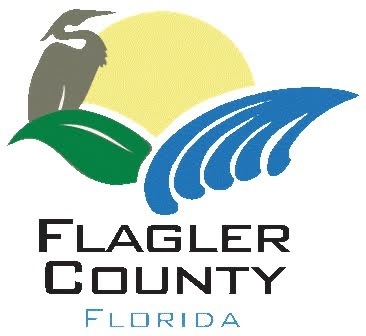Flagler County Board of County Commissioners held a workshop on June 9, 2025, to review the constitutional officers’ proposed budgets for the upcoming fiscal year, seeking a balance between the needs of the County and the budget constraints. The meeting began with the Pledge of Allegiance and a moment of silence honoring first responders and military personnel.
Finance Director Brian Ekinger provided an overview of the budget requests, highlighting a uniform proposed 4% cost-of-living adjustment across departments. He clarified that the tax collector’s office operates on commissions and that its actual expenses depend on revenue collections rather than fixed budget amounts.
Tom Bexley, Clerk of the Courts and Comptroller, detailed his office’s needs-based budget, emphasizing the pressing requirement to raise starting wages from $18 to $20 per hour to improve staff retention. Bexley pointed out that the office is understaffed despite full employment, noting that the population increases require about 15 additional employees compared to 18 years ago when the population was smaller. He emphasized the complexities of managing the county’s financial systems, including the new Munis accounting software, which demands significant support despite enhancing transparency. Bexley said, “There is absolutely zero fat, not one dime in this budget today,” stressing a commitment to responsible fiscal management. He also mentioned that the office manages over $200 million in investments, generating more than $5 million annually in revenue, which supports these expenses.
Sheriff Rick Staly presented next, explaining that the sheriff’s office is the county’s largest law enforcement agency, responsible for multiple cities and towns. He outlined key statistics, including over 112,000 calls for service last year and a 50% reduction in crime since 2017. The sheriff expressed concerns about rising operational costs, such as a 15% health insurance increase and significant jumps in radio and CAD system fees, talking about efforts to seek more cost-effective solutions. Addressing staffing, he proposed 12 new deputies, with three funded by the county and nine by the city of Palm Coast, aligning with prior agreements. Sheriff Staly explained the unique funding model in Flagler County, noting the “basic level” of service funded by the county versus “enhanced service” funded by Palm Coast, and stressed the importance of continued cooperation. Regarding budget control, he noted, “It is within the county commission’s purview to make the final say on the allocations of the funds,” though constitutional officers maintain operational independence once budgets are approved.
Jay Gardner, the Property Appraiser, reported stable staffing with similar employee numbers to two decades ago despite population growth, attributing efficiency improvements partly to technology. He discussed challenges posed by legislative caps and exemptions that limit taxable value growth. Gardner also highlighted the importance of his office’s online services, remarking that their website reduces foot traffic and improves public access to property data significantly.
Supervisor of Elections Katie Leonard discussed her office’s modest budget increase, driven largely by the need to switch to a new website vendor following heightened cybersecurity threats from foreign entities targeting election systems. Leonard stressed the cyclical nature of election costs, peaking during major election years and dropping in others. She also anticipates potential delays in state reimbursements for special elections held recently, adding an element of uncertainty for her office’s finances.
Tax Collector Shelley Edmonson, newly sworn into office, clarified that her department operates on a fee-based system, funded by commissions on tax collections and revenue from DMV services. She noted the office’s role in enforcing local business tax receipts and tourist development taxes, including monitoring compliance in short-term rental properties using third-party internet surveillance. Edmonson emphasized the office’s responsibility in auditing and enforcement, stating, “We are bulldogs,” reflecting a proactive stance in ensuring revenue collection.
Throughout the meeting, commissioners engaged the officers with questions about staffing needs, cost drivers, and budget processes. Legal counsel clarified that while constitutional officers prepare and present their budgets, the Board of County Commissioners holds the authority to approve and allocate funds, retaining discretion over line items but allowing operational adjustments by officers post-approval.
Commissioners also discussed challenges related to balancing cost-of-living increases with merit-based pay systems. One commissioner noted, “We need to move into the 21st century and try to look at some of these costs as it relates to personnel.” Debates reflected concerns over escalating personnel costs, health insurance expenses, and the efficacy of uniform raises.
The workshop concluded with discussions about scheduling future meetings to continue budget deliberations and community members providing public comments. A Palm Coast resident highlighted concerns about local human services and homelessness, urging the board to address inefficiencies.
The workshop provided an overview of Flagler County’s constitutional budgets, attempting to balance the demands of growing county services with fiscal responsibility. Commissioners acknowledged “a $2.8 million gap to close” and expressed a desire to collaborate on solutions as they proceed with budget refinement.










